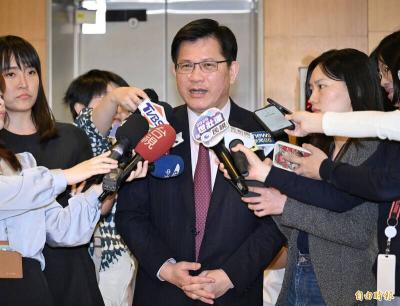A business mogul who recently ignited a firestorm of criticism over his remarks about the 1989 Tiananmen Square protests yesterday published an open letter in one of his newspapers saying the public should not doubt his commitment to democracy and freedom of speech.
Tsai Eng-meng (蔡衍明), chairman of the media conglomerate Want Want Group and the Chinese-language China Times, said he was upset over the recent controversy regarding his statements that the 1989 crackdown in Beijing did not constitute a massacre.
“From the bottom of my heart, I am very sad that the intellectual community has decided to boycott the China Times because of a misleading report that was obviously trying to hurt me,” Tsai said in the letter, published on page two of the China Times.
Tsai was referring to a recent interview with the Washington Post in which he appeared to say that the reports of a “massacre” were false.
According to the Washington Post, in an article written by Pulitzer-prize winning correspondent Andrew Higgins based on an interview he conducted, Tsai said in 1989 he was struck by footage of a lone protester standing in front of a People’s Liberation Army tank, before adding that the man was not killed showed that reports of a massacre were not true.
“I realized that not that many people could really have died,” Tsai was quoted as saying.
His comments sparked strong criticism among academics, journalists and human rights activists in Taiwan, including Wang Dan (王丹), an exiled student leader of the 1989 protests.
In addition, more than 60 local academics and civic group members launched a campaign on Tuesday to boycott the China Times and demanded that Tsai clearly explain his views to the public as promised.
However, in yesterday’s letter, Tsai said he could not keep that promise because the organizers of the campaign had already developed a bias against him.
“The group has prepared certain ‘topics’ for me to answer, which makes it an ‘open trial’ against me personally, instead of a dialogue,” he said. “How can I respond positively?”
In its boycott petition, the group raised a number of questions, including the issue of how media moguls should deal with editorial judgement and freedom of speech.
That question was in reference to one of Tsai’s comments in the Washington Post article that journalists are free to criticize, but they “need to think carefully before they write” and avoid “insults” that cause offense.
Meanwhile, in his open letter, Tsai offered to apologize if anything he said during the interview was disrespectful to the “mainland compatriots who suffered during the Tiananmen incident” or had hurt his Taiwanese compatriots.
“I love Taiwan,” he said. “I have always respected press freedom.”
In response, the civic group said they did not accept Tsai’s explanations because he had once again used one of his media outlets as his mouthpiece.
“May I ask what, or who does the China Times represent?” said Huang Kuo-chang (黃國昌), president of the Taipei Society, of which Wang is member.
“The letter only proves that our decision to boycott was the right one,” Huang said. “Tsai’s letter is a well-written article — that’s all.”
The latest issue of the Chinese-language Business Today quoted Higgins as saying that the Washington Post stood by the story, adding that the article did not take Tsai’s comments out of context.

Taiwan would welcome the return of Honduras as a diplomatic ally if its next president decides to make such a move, Minister of Foreign Affairs Lin Chia-lung (林佳龍) said yesterday. “Of course, we would welcome Honduras if they want to restore diplomatic ties with Taiwan after their elections,” Lin said at a meeting of the legislature’s Foreign Affairs and National Defense Committee, when asked to comment on statements made by two of the three Honduran presidential candidates during the presidential campaign in the Central American country. Taiwan is paying close attention to the region as a whole in the wake of a

Chinese Nationalist Party (KMT) Chairman Eric Chu (朱立倫), spokeswoman Yang Chih-yu (楊智伃) and Legislator Hsieh Lung-chieh (謝龍介) would be summoned by police for questioning for leading an illegal assembly on Thursday evening last week, Minister of the Interior Liu Shyh-fang (劉世芳) said today. The three KMT officials led an assembly outside the Taipei City Prosecutors’ Office, a restricted area where public assembly is not allowed, protesting the questioning of several KMT staff and searches of KMT headquarters and offices in a recall petition forgery case. Chu, Yang and Hsieh are all suspected of contravening the Assembly and Parade Act (集會遊行法) by holding

President William Lai (賴清德) has appointed former vice president Chen Chien-jen (陳建仁) to attend the late Pope Francis’ funeral at the Vatican City on Saturday on his behalf, the Ministry of Foreign Affairs said today. The Holy See announced Francis’ funeral would take place on Saturday at 10am in St Peter’s Square. The ministry expressed condolences over Francis’ passing and said that Chen would represent Taiwan at the funeral and offer condolences in person. Taiwan and the Vatican have a long-standing and close diplomatic relationship, the ministry said. Both sides agreed to have Chen represent Taiwan at the funeral, given his Catholic identity and

Taiwan would welcome the return of Honduras as a diplomatic ally if the next president of that country decides to make such a move, Minister of Foreign Affairs Lin Chia-lung (林佳龍) said today. “We would welcome Honduras if they want to restore diplomatic ties with Taiwan after their elections,” Lin said during a legislative hearing. At the same time, Taiwan is paying close attention to the Central American region as a whole, in the wake of a visit there earlier this year by US Secretary of State Marco Rubio, Lin said. Rubio visited Panama, El Salvador, Costa Rica and Guatemala, during which he